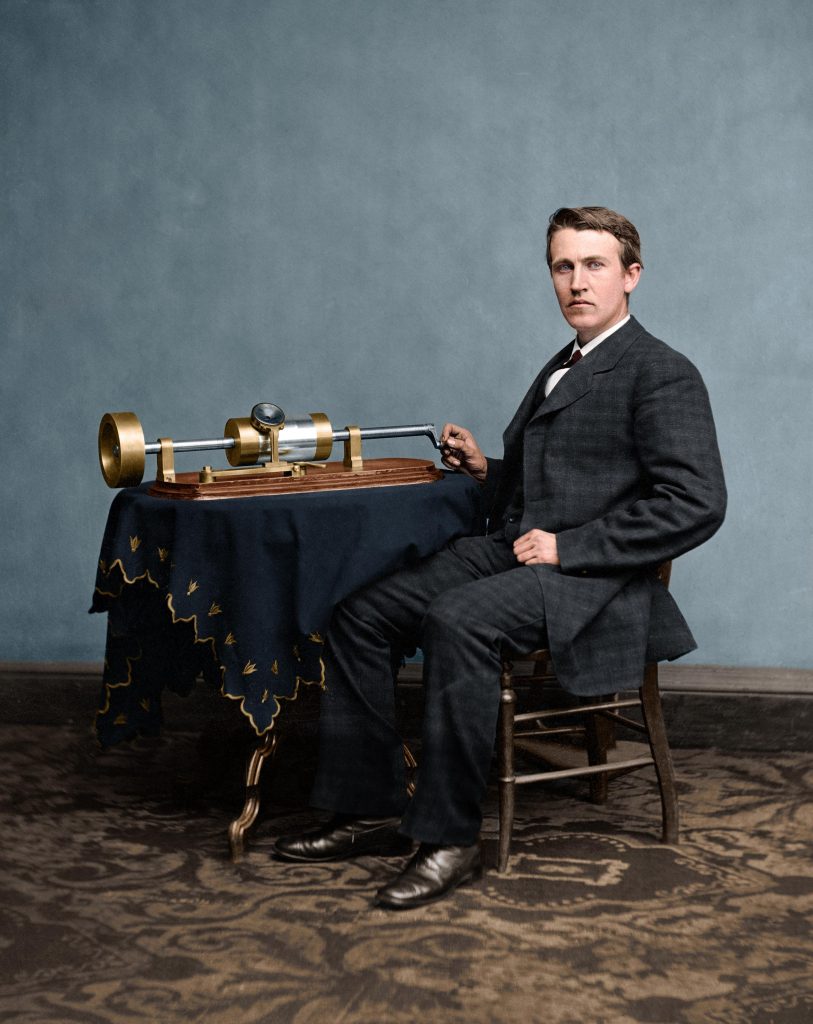Music Production is hard to define. At its core, Music Production is the process of creating capturing or manipulating sound and music to eventually be turned into a record, song or track. The role of the producer has been redefined many times, making it an ambiguous one.
Sound recording has always been a crucial part of production. Sound Recording throughout history can be split into four main eras; The Acoustic era (1877-1925), The Electrical era (1925-1945), The Magnetic era (1945-1975) and The Digital era (1975-present). The origins of the microphone date back to Thomas Edison and his invention the ‘Phonograph.’

Thomas Edison sat with his invention the ‘Phonograph.’
Producing has also tied in with the importance of understanding music and being able to guide an artist through the process of making a record. Producers such as George Martin worked closely alongside the Beatles throughout the start of their musical careers helping them create the Grammy winning Sgt. Pepper’s Lonely Hearts Club Band. He is often referred to as ‘The Fifth Beatle’ due to his importance in the success of the band.
Music Production nowadays is far more accessible than it has ever been in the past. The introduction of the DAW meant that anyone with a laptop or computer could begin producing. This has led to a drastic increase in the number of producers especially as computers have gotten more powerful. The increase in Producers has also led to the increase in music being created and produced. The increase in producers and the accessibility of producing has meant that artists and musicians no longer require a producer and can produce for themselves, further distorting the definition of the Music Producer.
Bibliography:
McNamara, R. (2018) ‘Edison’s Invention of the Phonograph’, thoughtco, 2 May. Available at: https://www.thoughtco.com/invention-of-the-phonograph-4156528 (Accessed: 06 October 2023).